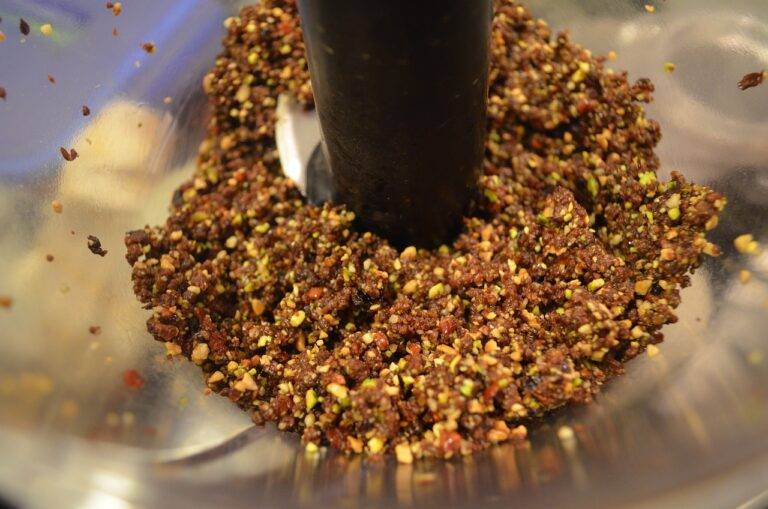Food Safety Testing in the Organic Food Industry
11xplay registration, laser 247com, tiger exchange 247 vip login: Food safety testing is a crucial aspect of the organic food industry. With the increasing demand for organic products, consumers are looking for reassurance that the products they are purchasing are safe to consume. In this article, we will explore the importance of food safety testing in the organic food industry and how it is carried out.
What is food safety testing?
Food safety testing is the process of analyzing food products to ensure that they are safe for consumption. This testing is done to identify any potential hazards or contaminants in the food that could pose a risk to human health. In the organic food industry, food safety testing is particularly important as consumers expect organic products to be free from synthetic pesticides, chemicals, and other harmful substances.
Why is food safety testing important in the organic food industry?
Food safety testing is important in the organic food industry for several reasons. Firstly, organic food products are produced without the use of synthetic pesticides and chemicals, which means there is a higher risk of contamination from natural sources such as bacteria, molds, and other pathogens. Food safety testing helps to ensure that these products are free from harmful contaminants and safe for consumption.
Secondly, organic food products often undergo less processing than conventional foods, which means there is a higher risk of contamination during production and handling. Food safety testing helps to identify any potential hazards in the production process and prevent them from reaching consumers.
How is food safety testing carried out in the organic food industry?
Food safety testing in the organic food industry is carried out through a combination of laboratory testing, on-site inspections, and certification programs. Laboratories test organic food products for a wide range of contaminants, including bacteria, molds, pesticides, heavy metals, and other harmful substances.
On-site inspections are conducted by certifying bodies to ensure that organic farms and processing facilities are following organic standards and practices. These inspections include checks on farming practices, handling and processing procedures, and record-keeping.
Certification programs such as the USDA Organic program and the European Union’s organic certification scheme provide consumers with assurance that organic food products have been produced and handled according to strict organic standards. These programs require regular testing and monitoring to ensure compliance with organic regulations.
What are the challenges of food safety testing in the organic food industry?
Despite the importance of food safety testing in the organic food industry, there are several challenges that need to be addressed. One of the main challenges is the lack of standardized testing methods for organic products. Organic products are often more complex than conventional products, which can make it difficult to develop standardized testing protocols.
Another challenge is the cost of food safety testing, which can be prohibitive for small-scale organic producers. Testing products for a wide range of contaminants can be expensive, especially for products with a short shelf life or low profit margins.
Additionally, the rapid growth of the organic food industry has put pressure on testing laboratories and certification bodies to keep up with the increasing demand for testing services. This can lead to delays in testing and certification, which can impact the availability of organic products in the market.
How can consumers ensure the safety of organic food products?
Consumers can take several steps to ensure the safety of organic food products. Firstly, they should look for organic certification labels on products, such as the USDA Organic seal or the EU organic logo. These labels indicate that the products have been produced and handled according to organic standards and have undergone food safety testing.
Consumers should also read product labels and ingredient lists carefully to ensure that the products are free from synthetic pesticides, chemicals, and other harmful substances. They should also purchase organic products from reputable sources, such as certified organic farms and retailers.
Finally, consumers can contact organic certification bodies or government agencies if they have any concerns about the safety of organic food products. These organizations can provide information on organic standards, testing procedures, and how to report any issues with organic products.
In conclusion, food safety testing is a critical aspect of the organic food industry. It helps to ensure that organic products are free from harmful contaminants and safe for consumption. Consumers can play a role in ensuring the safety of organic food products by looking for organic certification labels, reading product labels carefully, and purchasing products from reputable sources. By working together, consumers, producers, and regulatory bodies can help to maintain the integrity and safety of organic products.
FAQs
Q: How often are organic food products tested for safety?
A: The frequency of food safety testing for organic products varies depending on the type of product, the production process, and regulatory requirements. In general, organic products are tested regularly to ensure their safety and compliance with organic standards.
Q: Are organic products safer than conventional products?
A: Organic products are produced without the use of synthetic pesticides and chemicals, which can reduce the risk of exposure to harmful substances. However, organic products are not immune to contamination and should be tested for safety like any other food product.
Q: What should I do if I suspect that an organic product is contaminated?
A: If you suspect that an organic product is contaminated or unsafe, you should contact the producer or retailer immediately. You can also report your concerns to organic certification bodies or government agencies responsible for food safety.
Q: Are there any specific food safety guidelines for organic products?
A: Organic products are required to adhere to specific food safety standards and guidelines, such as those set out by the USDA Organic program or the EU organic certification scheme. These guidelines cover aspects such as farming practices, handling and processing procedures, and the use of synthetic substances.
Q: How can I learn more about food safety testing in the organic food industry?
A: You can learn more about food safety testing in the organic food industry by contacting organic certification bodies, government agencies, or industry organizations. These organizations can provide information on testing procedures, organic standards, and how to ensure the safety of organic products.







